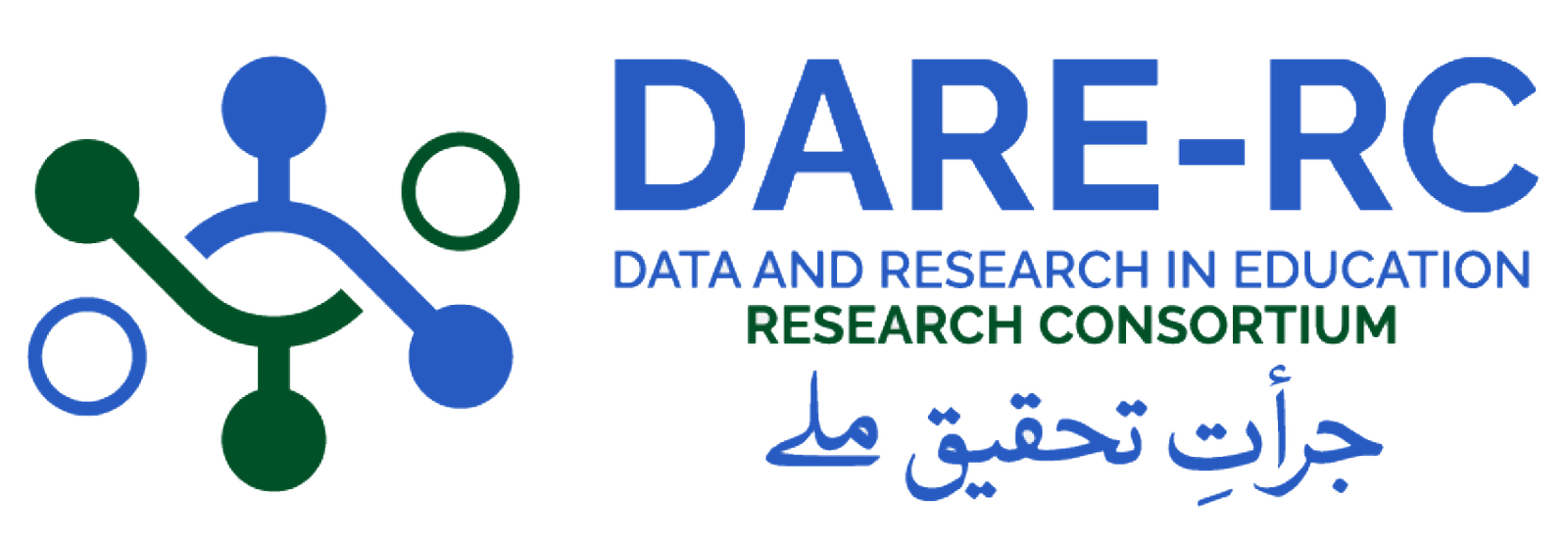The Data and Research in Education – Research Consortium (DARE-RC) convened a policy roundtable in Peshawar to build synergies between DARE-RC’s research and education policymaking in Khyber Pakhtunkhwa. The event brought together representatives from government, academia, and development partners to deliberate on critical evidence shaping education policy in Khyber Pakhtunkhwa. Hosted at the University of Peshawar, the event was jointly organised by Oxford Policy Management (OPM), Aga Khan University Institute for Educational Development (AKU-IED), and Sightsavers as part of the DARE-RC programme funded by the UK Foreign, Commonwealth and Development Office (FCDO).
Prominent educationists, researchers, and policymakers from Khyber Pakhtunkhwa emphasised the critical need to cultivate a culture of data utilisation within the education sector, ensuring effective policymaking, particularly for enhancing the quality of learning for all children, with a special focus on marginalised communities. The event focused on integrating rigorous research insights into the province’s education priorities.
The discussions across key themes, including Equitable Access and Inclusion, Strengthening Frontline Education Provision, and Governance, Management and Effective Data Use, will directly inform targeted policy development. The DARE-RC consortium affirmed its ongoing engagement with Khyber Pakhtunkhwa’s education sector, ensuring that evidence continuously informs policy.
Ms Maria Wyard, Campaign Goal 3 Head at the British High Commission said: “It is a challenging task for researchers to generate insights to solve deep-rooted problems, and for that it is important to contextualise the needs of the various parts of the country. FCDO is looking forward to DARE-RC’s research in Khyber Pakhtunkhwa, especially as it focuses on creating resilient education systems, and strengthening teaching quality, and improving inclusion. We are keen to see its potential for policy uptake, especially in wake of the ongoing climate change shocks in the region.”
“This collaborative effort will help shape Khyber Pakhtunkhwa’s policy planning such as the upcoming Education Sector Plan,” said Mr Muhammad Khalid Khan, Secretary, Elementary and Secondary Education Khyber Pakhtunkhwa. He highlighted, “We continuously face challenges in translating research into practice to make a difference. Research is crucial to enable us to make informed decision to ensure effective work and good use of resources. All DARE-RC’s research areas are all highly relevant to driving education outcomes. I congratulate and thank FCDO and the DARE-RC programme who are investing efforts into conducting this research and we look forward to translating this evidence into our decisions in Khyber Pakhtunkhwa’s education sector.”
Ms Saima Anwer, Programme Director, DARE-RC, highlighted DARE-RC’s “ambition to comprehend Pakistan’s education landscape, address challenges through rigorous research, and drive efforts to propose workable and scalable solutions to policymakers”. She added, “DARE-RC will translate evidence into policy uptake for ensuring lasting impact for Khyber Pakhtunkhwa’s education and children, especially the most marginalised”.
Dr Ehtasham Anwar, Team Lead DARE-RC, further emphasised, “No programme, how well funded and planned can succeed in isolation. That is why researchers, policymakers, and practitioners must collaborate to make education work. DARE-RC’s research areas such as equitable access, teaching quality, building resilience, and improving governance in education are not only terms but pillars of the system to uplift the children.”
The DARE-RC leadership team closed the session with key takeaways and a forward-looking agenda, committing to DARE-RC’s continued engagement with Khyber Pakhtunkhwa’s education sector and a focus on translating evidence into actionable policy.
Following its broader mission, DARE-RC is a pioneering collaborative knowledge-building programme for empowering policymakers to drive education reform. Through strategic dialogues like the Khyber Pakhtunkhwa Policy Roundtable, the consortium contributes to a culture of effective data-use for education policymaking, beneficial for all the children, especially the most marginalised.
